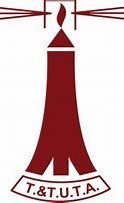Learning loss and education recovery

An ongoing conversation
THIS WEEK marks the final week of a tumultuous return to school characterised by cases of covid19 infections impacting both teachers and children as well as the usual challenges with school plants and lack of resources. Student performance at the SEA also bears witness to a continuing decline, with a noticeable increase in the number of children achieving under 50 per cent, and the Ministry of Education signalling its intent to institute remedial action during the July/August vacation.
There is no gainsaying that within the education sphere we have not emerged unscathed from the effects of the pandemic. Indeed, the language being used among policymakers and practitioners is learning loss and education recovery.
As we look ahead to the new academic year, there are questions that we must address seriously with plausible solutions in mind. Primary among these may be: What is the nature of the learning loss experienced by our students? What systems do need to put in place to reverse or mitigate the impact of the loss? How committed are we to ensuring that all the conditions necessary for supporting an enabling environment to bring about the needed changes will be present in our schools?
Let us begin by addressing the immediate concerns that have emerged from the pandemic – the issues of learning loss and education recovery. What do educators mean when they use these terms?
Traditionally, the term learning loss has been used to describe general or specific loss in knowledge or skills or to reversals in academic performance arising out of extended gaps or discontinuities in children’s education, as happens after the July/August vacation, for example, or if a student drops off for an extended period, then returns to school.
Research evidence, though limited, is beginning to emerge illustrating the ways in which covid19 has exacerbated the phenomenon of learning loss. In the Netherlands, where schools were only shut down for eight weeks, it was found that students made little or no progress learning from home. In the US, researchers are beginning to point out that the loss is not only in terms of academics but also in terms of skills, attitudes and dispositions needed for later life and the workplace.
How do we address this matter? We need to begin by attempting to define the nature of the problem for our own context. A look outside sensitises us to the challenges that have been faced by others and factors that we have to consider as we define our own problem. But we also need to look within because context matters. We have to be systematic in identifying who has been affected, in what way and to what extent. It is only when we do our due diligence in this regard will we be ready to intervene in ways that can make a difference.
Alongside talk of learning loss is also that of education recovery. Again, before we can address the problem, we need to define it. Education recovery is a term that has achieved prominence during the pandemic and in conversations involving addressing the learning loss experienced.
While hard-pressed to find a clear definition or description for education recovery, what is evident from the available literature is that considerable thought has been and is being given to finding ways to address the academic loss experienced by students globally. Indeed, within the Caribbean region, a framework for education recovery, “Let’s REAP”, has been developed (a discussion of which will be addressed in a subsequent article).
As we consider the challenges associated with learning loss and education recovery, of one thing we are certain – covid19 disruptions revealed the inequities that already existed in the system. It became even more glaring that there are students who were already at-risk and became further disadvantaged by these disruptions with systems in place to intervene and stymie the negative impact of the pandemic.
As we engage these discussions about learning loss and begin to act towards recovery, it is important for the public to understand that education is not about platform promises, photo opportunities or simple policy check marks. Education should be focused on creating enabling conditions to provide our students with the best opportunities to realise their potential. Of course, the question has been and always will be: “How do we do this?”
It is time, however, that we move beyond reflecting on this question and taking the measures that are essential rather than the ones that are expedient, including appropriate and relevant programming supported by adequate funding. The discussion continues.


Comments
"Learning loss and education recovery"